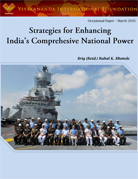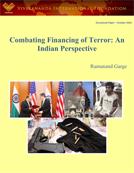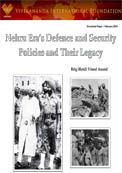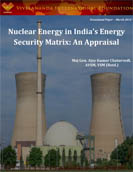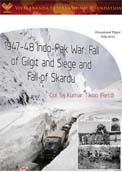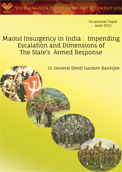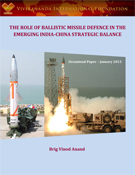Comprehensive National Power – Concept and Utility National power is defined as the ability of a nation to attain its strategic objectives by directed action. The use of power would be based on the overall national vision based on the aspirations of the people at large and the capability of the leadership to fulfill the same. Click here to read full Paper
Introduction The Indian state possesses a unique characteristic of a mix of peace and conflict trajectories that greatly impact its policy and execution. This is true also of its policies on and responses to the most potent threat it faces in the form of externally sponsored terrorism spreading in through its porous borders and internal terror largely on account of weak governance. Click here to read full Paper
Introduction During the nationalist movement and struggle for independence, there was little attention paid to articulation of India’s defence and security policies by the Indian National Congress (INC). Allusions to concepts and precepts of defence of an independent India were entirely absent from INC party resolutions and documents or for that matter in the speeches of the political leadership. Click here to read full Paper
Abstract Energy is essential for the economic growth of a nation. India, which is in the lower half of the countries as far as the energy consumption per capita is concerned, needs to leap frog from its present position to upper half, commensurate with its growing economic stature, by adopting an approach, where all available sources need to be optimally used in a coordinated manner, to bridge the demand supply gap.
Part- I: Fall of Gilgit India has fought many conventional wars since independence; it has also been involved in fighting insurgency and proxy wars during this period. Many heroes that these wars produced have become household names. However, these wars also produced heroes who remain unsung; whose stories of bravery and gallantry are not so well known. One such story is recounted here. Click here to read full Paper
Resurgence of Maoist Violence Since the mid-2011 or so, the intensity of Maoist insurgency had somewhat been less spectacular as compared to the preceding years. Indeed, there had been many Maoist-Police encounters during this time, mostly in Jharkhand and Chhattisgarh, but the frequency of such incidents had shown a definite downslide. Click here to read full Paper
Kautilya wrote in the Arthashastra that a state could be at risk from four different kinds of threats – internal, external, externally-aided internal and internally-aided external. The internal security scenario in India has a mix of all the shades of threats visualized by Kautilya. It is indeed a dismal scenario. Click here to read full Paper
India and China have been pursuing essentially a two pronged strategy in Asia, particularly in the Indian Ocean region. On the one hand, they are engaged in a growing economic partnership with a moderating influence on the strategic competition. On the other hand, they have been relentless in their pursuit of a militarily advantageous position in the region. The equation, however, is not comparable, with India having to account for Pakistan, while China has to contend with a US-Taiwan partnership.
It is axiomatic that military aspects can not be discussed in isolation as many other factors have a direct impact on the given military situation. In the current Af-Pak scenario political and economic compulsions have a direct bearing on the behaviour of many players in the evolving Af-Pak imbroglio. Clausewitz opined that ‘war is a continuation of politics’ which in effect means that war or for that matter any military action can not be separated from political activity. Further, to execute any kind of national or military strategy adequate resources are required.
According to Stockholm International Peace Research Institute (SIPRI), today India is world’s largest arms importer with country’s spending on defence hovering between 2.3% and 3% of GDP.

